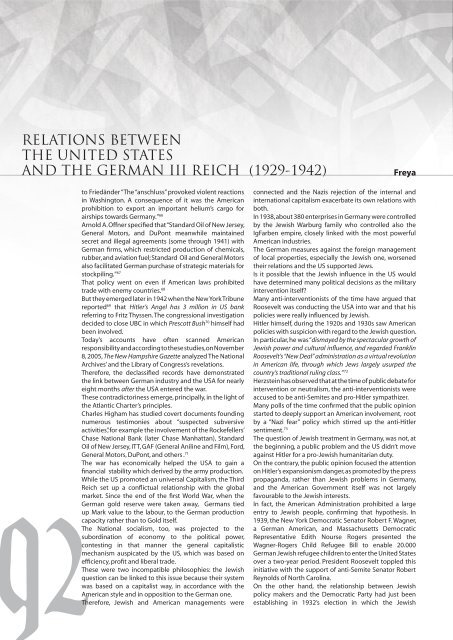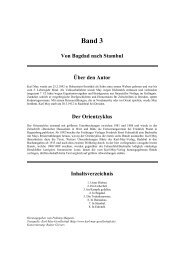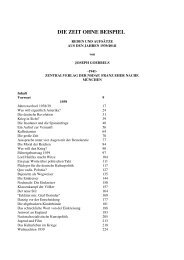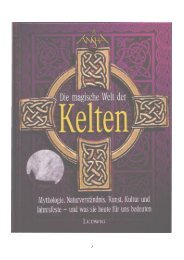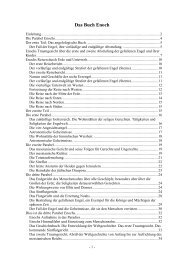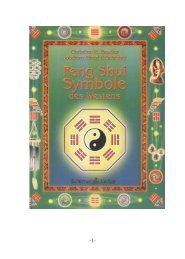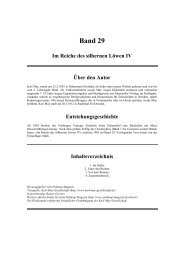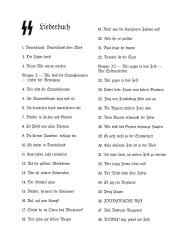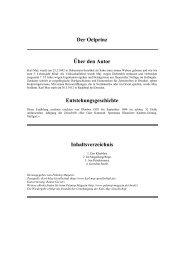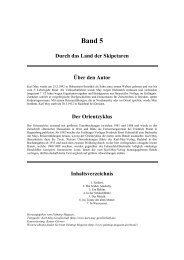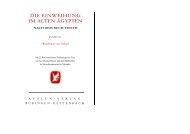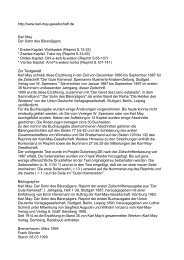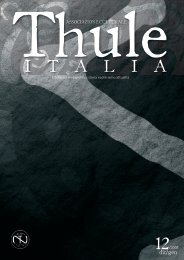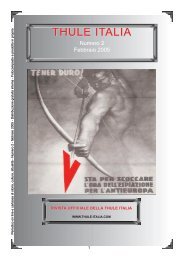Thule Italia feb2006.indd - Thule-italia.net
Thule Italia feb2006.indd - Thule-italia.net
Thule Italia feb2006.indd - Thule-italia.net
You also want an ePaper? Increase the reach of your titles
YUMPU automatically turns print PDFs into web optimized ePapers that Google loves.
RELATIONS BETWEEN<br />
THE UNITED STATES<br />
AND THE GERMAN III REICH (1929-1942) in<br />
to Friedänder “The “anschluss” provoked violent reactions<br />
in Washington. A consequence of it was the American<br />
prohibition to export an important helium’s cargo for<br />
airships towards Germany.”<br />
2<br />
66<br />
Arnold A. Offner specified that “Standard Oil of New Jersey,<br />
General Motors, and DuPont meanwhile maintained<br />
secret and illegal agreements (some through 1941) with<br />
German firms, which restricted production of chemicals,<br />
rubber, and aviation fuel; Standard Oil and General Motors<br />
also facilitated German purchase of strategic materials for<br />
stockpiling.” 67<br />
That policy went on even if American laws prohibited<br />
trade with enemy countries. 68<br />
But they emerged later in 1942 when the New York Tribune<br />
reported69 that Hitler’s Angel has 3 million in US bank<br />
referring to Fritz Thyssen. The congressional investigation<br />
decided to close UBC in which Prescott Bush70 himself had<br />
been involved.<br />
Today’s accounts have often scanned American<br />
responsibility and according to these studies, on November<br />
8, 2005, The New Hampshire Gazette analyzed The National<br />
Archives’ and the Library of Congress’s revelations.<br />
Therefore, the declassified records have demonstrated<br />
the link between German industry and the USA for nearly<br />
eight months after the USA entered the war.<br />
These contradictoriness emerge, principally, in the light of<br />
the Atlantic Charter’s principles.<br />
Charles Higham has studied covert documents founding<br />
numerous testimonies about “suspected subversive<br />
activities”, for example the involvement of the Rockefellers’<br />
Chase National Bank (later Chase Manhattan), Standard<br />
Oil of New Jersey, ITT, GAF (General Aniline and Film), Ford,<br />
General Motors, DuPont, and others . 71<br />
The war has economically helped the USA to gain a<br />
financial stability which derived by the army production.<br />
While the US promoted an universal Capitalism, the Third<br />
Reich set up a conflictual relationship with the global<br />
market. Since the end of the first World War, when the<br />
German gold reserve were taken away, Germans tied<br />
up Mark value to the labour, to the German production<br />
capacity rather than to Gold itself.<br />
The National socialism, too, was projected to the<br />
subordination of economy to the political power,<br />
contesting in that manner the general capitalistic<br />
mechanism auspicated by the US, which was based on<br />
efficiency, profit and liberal trade.<br />
These were two incompatible philosophies: the Jewish<br />
question can be linked to this issue because their system<br />
was based on a capitalist way, in accordance with the<br />
American style and in opposition to the German one.<br />
Therefore, Jewish and American managements were<br />
Freya<br />
connected and the Nazis rejection of the internal and<br />
international capitalism exacerbate its own relations with<br />
both.<br />
In 1938, about 380 enterprises in Germany were controlled<br />
by the Jewish Warburg family who controlled also the<br />
IgFarben empire, closely linked with the most powerful<br />
American industries.<br />
The German measures against the foreign management<br />
of local properties, especially the Jewish one, worsened<br />
their relations and the US supported Jews.<br />
Is it possible that the Jewish influence in the US would<br />
have determined many political decisions as the military<br />
intervention itself?<br />
Many anti-interventionists of the time have argued that<br />
Roosevelt was conducting the USA into war and that his<br />
policies were really influenced by Jewish.<br />
Hitler himself, during the 1920s and 1930s saw American<br />
policies with suspicion with regard to the Jewish question.<br />
In particular, he was “dismayed by the spectacular growth of<br />
Jewish power and cultural influence, and regarded Franklin<br />
Roosevelt’s “New Deal” administration as a virtual revolution<br />
in American life, through which Jews largely usurped the<br />
country’s traditional ruling class.” 72<br />
Herzstein has observed that at the time of public debate for<br />
intervention or neutralism, the anti-interventionists were<br />
accused to be anti-Semites and pro-Hitler sympathizer.<br />
Many polls of the time confirmed that the public opinion<br />
started to deeply support an American involvement, root<br />
by a “Nazi fear” policy which stirred up the anti-Hitler<br />
sentiment. 73<br />
The question of Jewish treatment in Germany, was not, at<br />
the beginning, a public problem and the US didn’t move<br />
against Hitler for a pro-Jewish humanitarian duty.<br />
On the contrary, the public opinion focused the attention<br />
on Hitler’s expansionism danger, as promoted by the press<br />
propaganda, rather than Jewish problems in Germany,<br />
and the American Government itself was not largely<br />
favourable to the Jewish interests.<br />
In fact, the American Administration prohibited a large<br />
entry to Jewish people, confirming that hypothesis. In<br />
1939, the New York Democratic Senator Robert F. Wagner,<br />
a German American, and Massachusetts Democratic<br />
Representative Edith Nourse Rogers presented the<br />
Wagner-Rogers Child Refugee Bill to enable 20.000<br />
German Jewish refugee children to enter the United States<br />
over a two-year period. President Roosevelt toppled this<br />
initiative with the support of anti-Semite Senator Robert<br />
Reynolds of North Carolina.<br />
On the other hand, the relationship between Jewish<br />
policy makers and the Democratic Party had just been<br />
establishing in 1932’s election in which the Jewish<br />
46 GIUSEPPE MAMMARELLA,<br />
Destini incrociati- Europa<br />
e Stati Uniti nel XX secolo,<br />
Laterza, Bari, 2000, 102.<br />
47 ROBERT E. HERZSTEIN,<br />
Roosevelt & Hitler- prelude<br />
to war, Paragon house, New<br />
York, 1989, 245-246.<br />
48 RODERICK STACKELBERG<br />
, Hitler’s Germany- Origins,<br />
Interpretations, Legacies,<br />
Routledge, London, 1999,<br />
195.<br />
49 GIUSEPPE MAMMARELLA,<br />
Op.cit, 102.<br />
50 GIUSEPPE MAMMARELLA,<br />
Op.cit , 103.<br />
51 ROBERT E. HERZSTEIN,<br />
Roosevelt & Hitler- prelude<br />
to war, Paragon house, New<br />
York, 1989, 245-246.<br />
52 STEVEN CASEY, Franklin D.<br />
Roosevelt, American Public<br />
Opinion, and the War against<br />
Nazi Germany- Cautious<br />
Crusade, Oxford University<br />
Press, 2001, 51.<br />
53 Propaganda Agency until<br />
June 1942.<br />
54 STEVEN CASEY, Op.cit, 54.<br />
55 STEVEN CASEY, Op.cit, 39.<br />
56 From a memorandum of<br />
the conversation with Reich<br />
minister of propaganda Dr.<br />
Goebbels.<br />
Document available at<br />
“The Roosevelt Presidential<br />
Library” on-line:<br />
http://www.fdrlibrary.<br />
marist.edu/psf/box32/<br />
a301b02.html , last accessed:<br />
2005-09-22.<br />
57 www.jewishvirtuallibrary.<br />
org. , last accessed: 2005-11-5.<br />
58 JERALD A. COMBS,<br />
American Diplomatic History,<br />
University of California Press,<br />
Berkeley and Los Angeles,<br />
1983, 206.<br />
59 ERNEST R. MAY, Nazi<br />
Germany and the United<br />
States: A Review Essay, The<br />
Journal of Modern History,<br />
Vol. 41,<br />
No. 2, Jun., 1969, The<br />
University of Chicago<br />
Press, 209.<br />
60 GIUSEPPE MAMMARELLA,<br />
Destini incrociati- Europa<br />
e Stati Uniti nel XX secolo,<br />
Laterza, Bari, 2000, 110.<br />
Emergency Economic Powers<br />
Act is commonly known as<br />
the Trading with the Enemy<br />
Act. It is a United States<br />
law allowing presidents<br />
to prohibit transactions in<br />
which a foreign government<br />
or national has an interest.<br />
The official description of the<br />
Act, as part of Public Law, is:<br />
An Act To define, regulate,<br />
and punish trading with<br />
the enemy, and for other<br />
purposes.<br />
lingua<br />
Herbert Lehman had been elected the new Governor of<br />
New York. 74<br />
Notwithstanding that, the anti-Semitism was still present<br />
in the American political environment in the same<br />
period, in fact, the congressman Louis T. McFadden from<br />
Pennsylvania has openly attacked the Jews in Congress.<br />
Besides, in the USA, many manifestations against the Nazi<br />
regime didn’t lack ever since 1933, for example, when on<br />
March 27, over 50.000 people protested at New York City.<br />
75<br />
But, at the time, the official line of the US was not contrary<br />
to Germany, rather, Roosevelt demonstrated to be<br />
optimistic.<br />
In 1939, Ribbentrop said to Ciano that the crisis proved<br />
isolationists’ power in the USA and affirmed the only<br />
presence of the Jewish propaganda in the Eastern<br />
America. Actually, this forecast would have been denied<br />
in the future. 76<br />
In the same year, the US refused to take in any refugees,<br />
and sent Coast Guard boats “to prevent passengers from<br />
jumping overboard. After all efforts failed, The St. Louis<br />
was forced to return to Europe. The German Press gloated:<br />
We say we don’t want Jews while the democracies claim they<br />
are willing to receive them. A Gallup poll reported that 83<br />
percent of Americans opposed the admission of a larger<br />
number of Jewish refugees.” 77<br />
However, after Roosevelt’s change of attitude in the last<br />
1937, in concomitance with the new economic recession,<br />
Jewish supported more and more democrats that were<br />
promoting the American intervention. In 1940, the 90%<br />
of Jewish votes went to Roosevelt. 78<br />
Hitler has often spoken about the Jewish theme in his<br />
mass rallies and businessmen overtures because he<br />
considered Jewish one of the most relevant problem for<br />
German economy, as he wrote to Roosevelt in 1939:<br />
“Jewish parasites, on the one hand, plundered the nation<br />
ruthlessly and, on the other hand, incited the people, reduced<br />
as it was to misery. As the misfortune of our nation became<br />
the only aim and object of this race, it was possible to breed<br />
among the growing army of unemployed suitable elements<br />
for the Bolshevik revolution.<br />
The decay of political order and the confusion of public<br />
opinion by the irresponsible Jewish press led to ever stronger<br />
shocks to economic life and consequently to increasing<br />
misery and to greater readiness to absorb subversive<br />
Bolshevik ideas. The army of the Jewish world revolution, as<br />
the army of unemployed was called, finally rose to almost<br />
seven million”. 79<br />
Hitler accused Jewish people of causing misery to the<br />
German people with their systems and that caused<br />
a favourable ground for the Communist ideologies<br />
expansion.<br />
Arnold A. Offner affirmed that the economic policies<br />
didn’t determine so much the war 80 , for him, the theory<br />
of an economic reason towards the involvement took<br />
special relevance in the last decade only: “During the<br />
last decade or so, various historians have argued that<br />
American belligerency toward Germany resulted less<br />
from Nazi militarism, racism, and expansionism than from<br />
Germany’s autarchic policies, which challenged the Open<br />
Door policy in Eastern Europe and Latin America and the<br />
American conception of a world political economy. They<br />
have argued that economics primarily determined the<br />
change in United Stats-German relations, that the change<br />
occurred long before September 1939, not to mention<br />
December 1941, and that belligerency thus became<br />
virtually inevitable.” 81<br />
But to sustain the thesis of the economic interests behind<br />
the American war involvement there are the intentions of<br />
the great financers of the time: “In 1937 Thomas J. Watson<br />
of IBM told the International Chamber of Commerce in<br />
Berlin that there would be “World Peace through World<br />
Trade”. 82 Industrialists believed that a peaceful coexistence<br />
would have possible with a same economic management<br />
based on trade and free market, as the US supported.<br />
As well, many American industrials of the time have<br />
supported the Nazi philosophy too, from its origins. Henry<br />
Ford, for example, who was anti-Semitic, accepted in 1938<br />
the Third Reich’s medal of the Grand Cross of the German<br />
Eagle and Lindbergh was isolationist and mildly pro-Nazi<br />
until the US declaration of war on Germany.<br />
Lawrence Birken asserted that Hitler’s hostile attitude<br />
toward Jews was neither irrational nor aberrant. Jewish<br />
were not only a religious community, but they were<br />
“the personification of a great lie”, in other terms, “they<br />
constituted a self-selected national-ethnic group with<br />
international ambitions. Because he regarded the Jews<br />
as the enemies of all peoples, Hitler held that combatting<br />
Jewish power and influence should be the common duty<br />
of all nations”.<br />
That view is called by Birken Germanic Universalism. 83<br />
The fall of the Third Reich signed the victory of the US<br />
not only from the military point of view, but also from<br />
the ideological one. In fact, with the military victory, the<br />
capitalist model, supported by Americans and promoted<br />
in Germany by the Jewish people, became the prevalent<br />
one and it is still the most defended. The free market<br />
system and the internationalization of liberal trends match<br />
the capitalist philosophy, and support their ideological<br />
equivalent: democracy.<br />
The internationalization of these economical and<br />
ideological concepts attempt to resolve “peacefully” the


